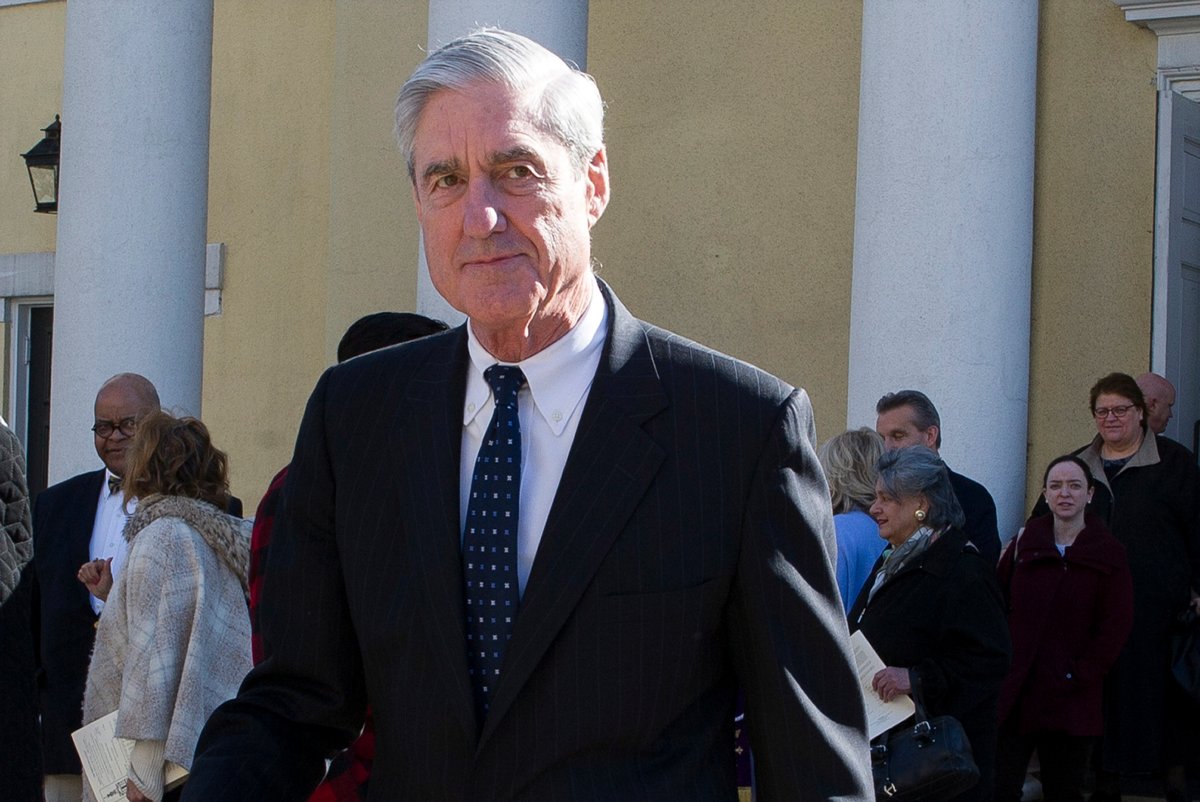When Robert Mueller handed his final report over to the Justice Department in March, Attorney General William Barr produced a four-page memo to Congress that outlined the special counsel’s findings.

The summary said that Mueller found no evidence that the Trump campaign colluded with Russia, and that the special counsel stopped short of exonerating U.S. President Donald Trump of obstruction of justice.
WATCH: April 18 — Schiff — Barr did grave disservice by misrepresenting Mueller Report

In the wake of that summary, Trump called the report a “complete and total exoneration,” and said there was “no obstruction, and none whatsoever.”
Near the end of that month, Mueller sent Barr a letter in which he took issue with the manner in which the attorney general characterized his findings, reports in The New York Times and The Washington Post said Tuesday.
READ MORE: READ — Full text of Mueller report summary by U.S. attorney general
In his March 27 letter, Mueller said that Barr’s four-page memo didn’t “fully capture the context, nature and substance” of the special counsel’s investigation, the Post reported.
The letter expressed concern that Mueller’s report was being publicly discussed in a way that reflected “public confusion about critical aspects of our investigation.
“This threatens to undermine a central purpose for which the department appointed the special counsel: to assure full public confidence in the outcome of the investigations.”
Mueller’s letter stunned some Justice Department staffers, as they thought the special counsel agreed with the process they were following when it came to releasing the report, unnamed officials told the Post.
In a statement to The New York Times, Justice Department spokeswoman Kerri Kupec said, “the special counsel emphasized that nothing in the attorney general’s March 24 letter was inaccurate or misleading.”
“But he expressed frustration over the lack of context and the resulting media coverage regarding the special counsel’s obstruction analysis.”
WATCH: April 29 — U.S. attorney general balks at closed-door hearing on Mueller report

When Barr’s summary was released, it gave the impression that the report identified “no actions that, in our judgment, constitute obstructive conduct, had a nexus to a pending or contemplated proceeding, and were done with corrupt intent.”
What Mueller’s report actually said was that investigators struggled with whether to charge the president with obstruction of justice, and ultimately didn’t do so because they did not find an underlying crime, and because Trump’s actions took place in “public view.”
Investigators examined 11 different events involving Trump that raised concerns regarding obstruction of justice.
READ MORE: Donald Trump — ‘I could have fired everyone, including Mueller, if I wanted. I chose not to’
Such incidents included Trump’s firing of former FBI director James Comey, as well as the manner in which Trump reacted to reports that he was taking support from Russia.
The report said, “the evidence we obtained about the president’s actions and intent presents difficult issues that would need to be resolved if we were making a traditional prosecutorial judgement.”
The Mueller report added, “if we had confidence after a thorough investigation of the facts that the president clearly did not commit obstruction of justice, we would so state.
“Based on the facts and the applicable legal standards, we are unable to reach that judgment.”
Consistent with Barr’s summary, the report also said that “while this report does not conclude that the president committed a crime, it also does not exonerate him.”
WATCH: April 18 — Jerrold Nadler: Barr has been ‘disingenuous and misleading’ on Mueller Report

Barr is scheduled to testify before the Senate Judiciary Committee on Wednesday.
He has also been invited to testify before the House Judiciary Committee on Thursday.
The Justice Department said he won’t testify there if the committee insists on having lawyers question him.
Jerrold Nadler, the chair of the House Judiciary Committee, has demanded that the Department of Justice (DOJ) deliver Mueller’s letter to him by 10 a.m. that morning, reports suggested.
In an earlier tweet, Nadler said Mueller “must be allowed to testify.”
Nadler wasn’t alone among current or former politicians reacting to news of Mueller’s letter.
Julian Castro, former housing secretary and a candidate for the Democratic nomination for president, said Barr must “resign his position or face an impeachment inquiry immediately.”
California Congressman Ted Lieu questioned whether Mueller’s letter is the reason why Barr is “afraid of testifying” before the House Judiciary Committee.
Meanwhile, Washington Gov. Jay Inslee said America “deserves to hear Robert Mueller testify before Congress.”
— With files from The Associated Press
- Alberta to overhaul municipal rules to include sweeping new powers, municipal political parties
- Canada, U.S., U.K. lay additional sanctions on Iran over attack on Israel
- No more ‘bonjour-hi’? Montreal mayor calls for French only greetings
- Trudeau says ‘good luck’ to Saskatchewan premier in carbon price spat




Comments